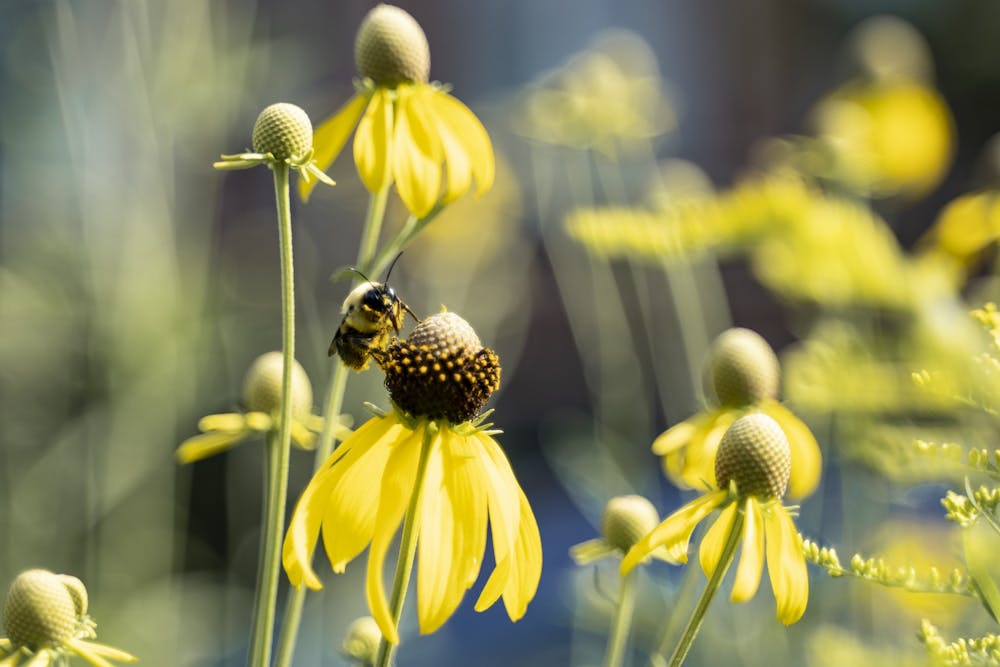Local and state pollinator conservation efforts have been hampered by the pandemic. Some organizations have had to cancel their events outright, while others have transitioned to virtual settings.
The Orange County Beekeepers Association educates beekeepers and the public about the importance of bees and other pollinators. In a typical year, Carrie Donley, vice president of the association, said outreach events include in-person presentations at schools and booths at fair, festivals and farmer’s markets.
“While we usually do about 50 outreach events a year, we haven't been able to do any of those,” Donley said.
The organization also offers a 10-week beekeeping course in January to teach people how to be beekeepers, including the biology of beekeeping, the monitoring and treatment of pests and diseases as well as seasonal hive management.
This year, Donley said the course will be held over Zoom at a reduced price.
One statewide conservation effort is the North Carolina Pollinator Conservation Alliance which represents over 20 conservation organizations. The group works on conservation projects, like adding pollinator habitats to solar farms across the state, and raises awareness through outreach events. These events include Pollinator Field Day, where those interested can learn about pollinators and interact with them in their habitats.
This year, the event was still held virtually, but according to Gabriela Garrison, chairperson of the alliance, it wasn’t the same.
“Nothing replaces being able to go out and catch bees with the net or get into the dirt and figure out how to plant some plants,” Garrison said.
For those interested in learning how to plant pollinator gardens, the NCPCA worked with the North Carolina Botanical Garden to produce the North Carolina Pollinator's Toolkit in 2019. It includes education on site preparation, maintenance, planting instructions and native species lists, said Heather Summer, program coordinator at the North Carolina Botanical Garden.



